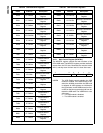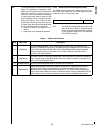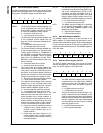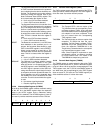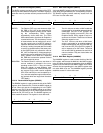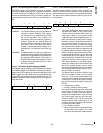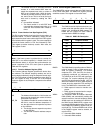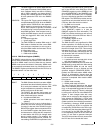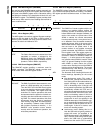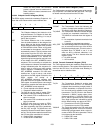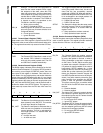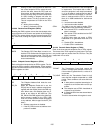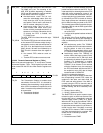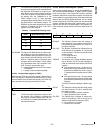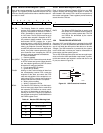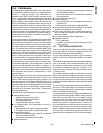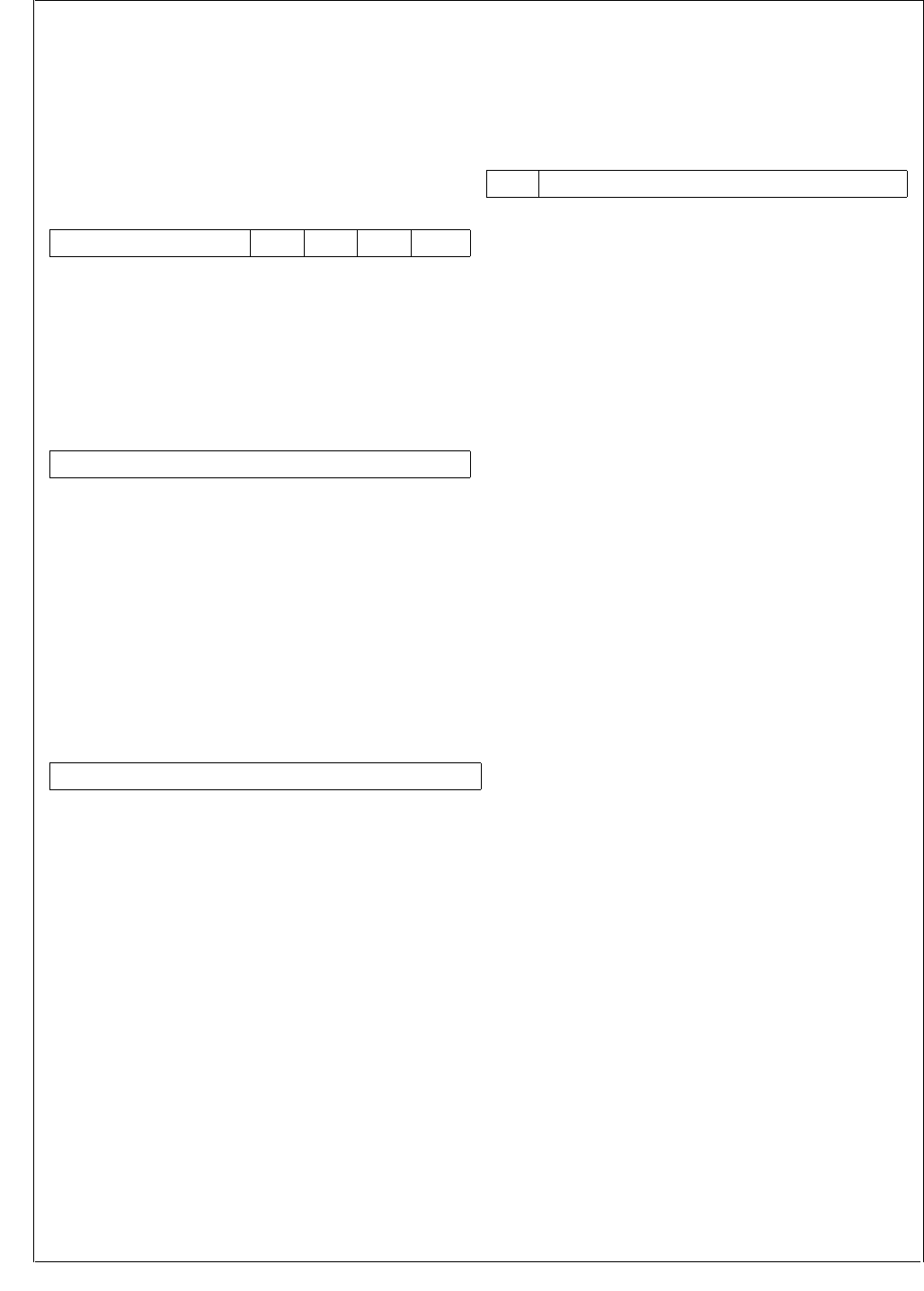
www.national.com 102
CP3BT26
18.3.20 DMA Mask Register (DMAMSK)
Any set bit in the DMAMSK register enables automatic set-
ting of the DMA bit in the ALTEV register when the respec-
tive event in the DMAEV register occurs. Otherwise, setting
the DMA bit is disabled. For a description of bits 0 to 3, see
the DMAEV register. The DMAMSK register provides read/
write access. After reset it is clear. Reading reserved bits re-
turns undefined data.
18.3.21 Mirror Register (MIR)
The MIR register is a read-only register. Because reading it
does not alter the state of the TXSn or RXSn register to
which it points, software can freely check the status of the
channel. At reset it is initialized to 1Fh.
STAT The Status field mirrors the status bits of the
transmitter or receiver n selected by the
DSRC[2:0] field in the DMACNTRL register
(DMA need not be active or enabled). It corre-
sponds to TXSn or RXSn, respectively.
18.3.22 DMA Count Register (DMACNT)
The DMACNT register specifies a maximum count for
ADMA operations. The DMACNT register provides read/
write access. After reset this register is clear.
DCOUNT The DMA Count field is decremented on com-
pletion of a DMA operation until it reaches 0.
Then the DCNT bit in the DMA Event register
is set, only when the next successful DMA op-
eration is completed. This register does not
underflow. For receive operations, this count
decrements when the packet is received suc-
cessfully, and then transferred to memory us-
ing DMA. For transmit operations, this count
decrements when the packet is transferred
from memory using DMA, and then transmit-
ted successfully. Software loads DCOUNT
with (number of packets to transfer) - 1. If a
DMACNT write operation occurs simulta-
neously with the decrement operation, the
write takes precedence.
18.3.23 DMA Error Register (DMAERR)
The DMAERR register holds the 7-bit DMA error counter
and a control bit to specify DMA error handling. The DMAE-
RR register provides read/write access. It is clear after re-
set.
DMAERRCNT
The DMA Error Counter, together with the au-
tomatic error handling feature, defines the
maximum number of consecutive bus errors
before ADMA mode is stopped. Software can
set the 7-bit counter to a preset value. Once
ADMA is started, the counter decrements
from the preset value by 1 every time a bus er-
ror is detected. Every successful transaction
resets the counter back to the preset value.
When ADMA mode is stopped, the counter is
also set back to the preset value. If the
counter reaches 0 and another erroneous
packet is detected, the DERR bit in the DMA
Event register is set. This register cannot un-
derrun. Software loads DMAERRCNT with 3D
(maximum number of allowable transfer at-
tempts) - 1. A write access to this register is
only possible when ADMA is inactive. Other-
wise, it is ignored. Reading from this register
while ADMA is active returns the current
counter value. Reading from it while ADMA is
inactive returns the preset value. The counter
decrements only if the AEH bit is set (auto-
matic error handling activated).
AEH The Automatic Error Handling bit has two dif-
ferent meanings, depending on the current
mode:
Non-Isochronous mode
—This mode is
used for bulk, interrupt and control trans-
fers. Setting AEH in this mode enables au-
tomatic handling of packets containing
CRC or bit-stuffing errors. If this bit is set
during transmit operations, the USB node
automatically reloads the FIFO and re-
schedules the packet to which the host did
not return an ACK. If this bit is clear, auto-
matic error handling ceases. If this bit is
set during receive operations, a packet re-
ceived with an error (as specified in the
DERR bit description in the DMAEV regis-
ter) is automatically flushed from the FIFO
being used so that the packet can be re-
ceived again. If this bit is cleared, auto-
matic error handling ceases.
Isochronous mode
—Setting this bit al-
lows the USB node to ignore packets re-
ceived with errors (as specified in the
DERR bit description in the DMAMSK reg-
ister). If this bit is set during receive oper-
ations, the USB node is automatically
flushed and the receive FIFO is reset to
7 4 3 2 1 0
Reserved DSIZ DCNT DERR DSHLT
7 0
STAT
7 0
DCOUNT
7 6 0
AEH DMAERRCNT



